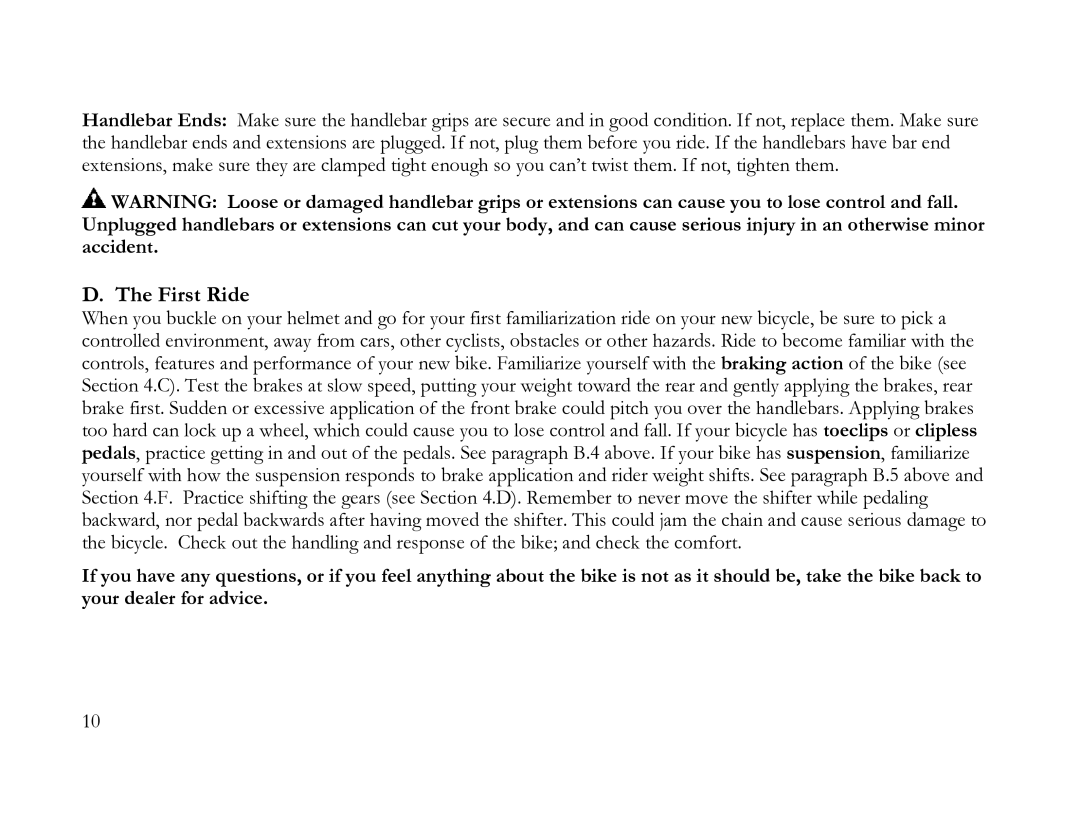Handlebar Ends: Make sure the handlebar grips are secure and in good condition. If not, replace them. Make sure the handlebar ends and extensions are plugged. If not, plug them before you ride. If the handlebars have bar end extensions, make sure they are clamped tight enough so you can’t twist them. If not, tighten them.
![]() WARNING: Loose or damaged handlebar grips or extensions can cause you to lose control and fall. Unplugged handlebars or extensions can cut your body, and can cause serious injury in an otherwise minor accident.
WARNING: Loose or damaged handlebar grips or extensions can cause you to lose control and fall. Unplugged handlebars or extensions can cut your body, and can cause serious injury in an otherwise minor accident.
D. The First Ride
When you buckle on your helmet and go for your first familiarization ride on your new bicycle, be sure to pick a controlled environment, away from cars, other cyclists, obstacles or other hazards. Ride to become familiar with the controls, features and performance of your new bike. Familiarize yourself with the braking action of the bike (see Section 4.C). Test the brakes at slow speed, putting your weight toward the rear and gently applying the brakes, rear brake first. Sudden or excessive application of the front brake could pitch you over the handlebars. Applying brakes too hard can lock up a wheel, which could cause you to lose control and fall. If your bicycle has toeclips or clipless pedals, practice getting in and out of the pedals. See paragraph B.4 above. If your bike has suspension, familiarize yourself with how the suspension responds to brake application and rider weight shifts. See paragraph B.5 above and Section 4.F. Practice shifting the gears (see Section 4.D). Remember to never move the shifter while pedaling backward, nor pedal backwards after having moved the shifter. This could jam the chain and cause serious damage to the bicycle. Check out the handling and response of the bike; and check the comfort.
If you have any questions, or if you feel anything about the bike is not as it should be, take the bike back to your dealer for advice.
10
